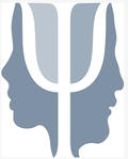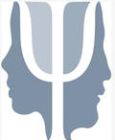Education
Teachers as Self- and Co-Regulating Learners
We should reconceptualize teacher development as collaborative inquiry.
Posted December 14, 2016
By Leyton Schnellert and Deborah L Butler
What qualities of professional development (PD) support teachers’ learning and practice? Much attention has been focused on how to best conceptualize and approach teachers' early and on-going professional development. Yet, in spite of over two decades of research, most professional development does not adequately consider what we know about teacher learning. Through our educational psychology research we have contributed by reconceptualizing professional development as collaborative inquiry. We have shown how, when PD is designed as collaborative inquiry, educators are supported to engage in generative cycles of self- and co-regulated practice and learning. That is, in this contribution to Psychology Today, we explain and illustrate how teachers’ professional learning through inquiry can productively be understood and supported as recursive cycles of intentional, goal-directed, and strategic activity to achieve valued outcomes.
Too often educators are still engaged in fragmented, "one-off" workshops during which they are given information they are invited to translate into practice. This is in spite of critiques of such top-down PD initiatives as failing to build from the knowledge and expertise of educators, underestimating the importance of teachers adapting practice to meet local needs, and undermining teachers’ morale and investment in innovation (Barnett, 2004; Borko, 2004; Brenner, 2012; Guskey, 2002; Robertson et al., 2004; Ryan & Brown, 2005; Ryan & Weinstein, 2009). This latter critique is particularly troubling, as achieving outcomes for learners is dependent on teachers incorporating new practices in their classrooms.
In contrast, PD that engages teachers in collaborative inquiry has the potential to advance both teachers' and students' agency and learning (Butler, Schnellert, & MacNeil, 2015). When engaged in inquiry, teachers identify student learning needs, pose a question, develop criteria for monitoring success, draw on resources to enhance their own learning, and embed new powerful (e.g., evidence-based) ideas in their practice. When engaged in inquiry, teachers are more likely to try new ideas, take risks, and persist through growing pains that inevitably accompany innovation (e.g., Cochran-Smith & Lytle, 2009; Schnellert & Butler, 2014; Van Horn, 2006). Further, when engaged in collaborative inquiry teachers support each other to work through inquiry cycles. When teachers inquire together, they are empowered to grapple with and take up new theories and practices as meaningful in their particular situations.
In our own collaborative research, conducted with educators across over a decade, we have co-constructed a framework for reconceptualizing teacher PD and gathered evidence about the generativity of PD models that foster inquiry and collaboration (see Figure 1). Most frequently models of self-regulation have been applied to describe students’ engagement in academic work. But, in our research, we have been extending a model of self-regulation to consider teachers’ engagement in practice and professional learning (Butler et al., 2004; Schnellert et al., 2008). Parallel to definitions of “inquiry,” self-regulation constitutes a recursive cycle of goal-directed, strategic activities. Parallel to our depiction of inquiry in Figure 1 cycles of self- and co-regulation include defining problems or expectations, setting goals, selecting, adapting, or inventing task appropriate strategies, self-monitoring outcomes, and revising goals or approaches to better achieve desired outcomes (Butler & Winne, 1995; Winne & Hadwin, 1998; Zimmerman & Schunk, 2001). Conceptualizing teachers' professional learning as forms of self- and co-regulation has been particularly useful in characterizing how teachers might engage together in iterative cycles of knowledge generation, through which they coordinate tacit and more explicit forms of knowledge (Butler & Schnellert, 2012).
In our work we have engaged educators in collaborative inquiry within networked learning communities (e.g., Butler & Schnellert, 2012; Schnellert, 2011). From our positions as "resources" to educators' inquiry, we have co-researched and/or supported inquiry communities in several ways, including by facilitating inquiry teams' work and by offering research-based models and examples as resources that support educators’ inquiries. We have also authored research-to-practice resources (e.g., Butler et al., 2016; Schnellert et al., 2015) that are being used widely in our own and other initiatives as reference texts. Like others, we have found that when schools and school districts offer situated, sustained, collaborative, inquiry-oriented professional development, they enable educators to effectively bridge theory and practice, yet personalize their learning (Schnellert & Butler, 2014).

For example, at Mildred Hall School in Yellowknife, Northwest Territories, Schnellert facilitated and investigated the work of a team of grades 4-8 teachers who were wondering how they could better engage and support their seemingly passive, diverse students in mathematics (also see Schnellert & Butler, 2014). To think through this problem they engaged in collaborative inquiry, starting with problem-refining. Then together they sought out research-based pedagogical possibilities such as differentiation, backward design, self-regulated learning, and teaching with manipulatives. Meeting together monthly, with support from Schnellert at three of these meetings, they drew on professional resources, including their school-based instructional coach to advance their professional learning, plan how they might take up ideas and enact them in practice, monitor progress towards goals, and make adjustments as needed. At monthly meetings the teachers shared the actions they had taken, reflected on their practice, and refined their understandings as they planned next steps. Together and with support from Schnellert, they developed and tested out an approach that involved introducing their classes to the "big math idea" on Monday through an open-ended, manipulatives-based lesson, engaging the students in three days of mini-lessons and differentiated experiences related to the big idea and then on Friday demonstrating their growing competence in a performance task that mirrored the lesson on Monday.
This example illustrates how collaborative inquiry can enable teachers’ work together so as to define problems, co-plan, co-enact, and co-monitor practices, and interpret outcomes. As a result, this mathematics-oriented inquiry offered educators opportunities to redefine the ways they interacted with students, content, and colleagues. As they tested out their model through cycles of action and reflection and challenged one another’s assumptions about their students’ capabilities. For example, one grade six teacher described how she had learned that, “we as adults 'jump in' too quickly to support students. We need to give them time to try on their own more. I’ve discovered that it is important to honour our IEP kids by including them and enabling them to work on the Big Idea at their own level.” The team’s grade seven teacher reported that, “I enjoyed talking with other math teachers and sharing ideas. [Our collaborative inquiry] made me think that I may be going too fast in my teaching and not allowing the students to talk about their thought process.” Together with Schnellert, these educators helped to advance their understanding about how collaborative inquiry processes work to advance their professional learning and practice (for additional examples see Butler & Schnellert, 2012; Butler et al., 2015; Schnellert & Butler, 2014; Schnellert et al., 2008).
Overall our research has shown that teachers make and sustain valued changes to their practice when they work together to develop and contextualize approaches with student learning goals in mind. We have found that when teachers collaboratively engage in self- and co-regulated learning and practice, as enacted through cycles of collaborative inquiry, they invest more in learning about, exploring and sustaining practices that enable student learning (Butler et al., 2013). Further, we suggest that research and researchers like ourselves become particularly useful to educators when we are accessed as resources and supports within their ongoing cycles of goal setting, planning, enacting, reflecting, and adjusting. As researchers in educational psychology, we also amplify our impact when we co-construct knowledge about professional learning and effective practices together with educators engaged in the day-to-day challenge of bringing research to life in classrooms.
This post is part of a special series curated by APA Division 15 President Nancy Perry. The series, centered around her presidential theme of "Bridging Theory and Practice Through Productive Partnerships," stems from her belief that educational psychology research has never been more relevant to practitioners' goals. Perry hopes the blog series will provoke critical and creative thinking about what needs to happen so that researcher and practitioner groups can work together collaboratively and productively. Those interested can learn more—and find links to the full series—here.
References
Barnett, E. (2004). Characteristics and perceived effectiveness of staff development practices in selected high schools in South Dakota. Educational Research Quarterly, 28(2), 3-18.
Borko, H. (2004). Professional development and teacher learning: Mapping the terrain. Educational Researcher, 33(8), 3-15.
Brenner, C. (2012). Examining the relationship between teachers’ experiences of self-determination and teacher effectiveness. Unpublished manuscript. Vancouver, BC: University of BC.
Butler, D. L., H. Novak Lauscher, S. Jarvis-Selinger, and B. Beckingham (2004). Collaboration and self-regulation in teachers’ professional development. Teaching and Teacher Education, 20, 435-455.
Butler, D. L., and L. Schnellert (2012). Collaborative inquiry in teacher professional development. Teaching and Teacher Education, 28, 1206-1220. http://dx.doi.org/10.1016/j.tate.2012.07.009.
Butler, D. L., L. Schnellert, and S. C. Cartier (2013). Layers of self- and co-regulation: Teachers’ co-regulating learning and practice to foster students’ self-regulated learning through reading. Education Research International, vol. 2013, doi:10.1155/2013/845694. Available at: http://www.hindawi.com/journals/edu/2013/845694/
Butler, D. L., L. Schnellert, and K. MacNeil (2015). Collaborative inquiry and distributed agency in educational change: A case study of a multi-level community of inquiry. Journal of Educational Change, 16(1), 1-26.
Butler, D. L., L. Schnellert, and N.E. Perry (2016). Developing Self-Regulating Learners. Don Mills, ON: Pearson.
Butler, D. L., & P. H. Winne (1995). Feedback and self-regulated learning: A theoretical synthesis. Review of Educational Research, 65, 245-281. Butler & Winne (1995).
Cochran-Smith, M. & S. Lytle (2009). Inquiry as stance: Practitioner research in the next generation. New York, NY: Teachers College Press.
Guskey, T. (2002). Professional development and teacher change. Teachers and Teaching: Theory and Practice, 8(3/4), 380-391.
Robertson, J., M. Hill, and L. Earl (2004). Conceptual frameworks in school-university action research communities. Paper presented at the New Zealand Research in Education conference. Wellington, N.Z.
Ryan, R.M. and K. W. Brown (2005) Legislating competence: High-stakes testing policies and their relations with psychological theories and research. In A.J. Elliot and C.S. Dweck (eds), Handbook of Competence and Motivation, 354–372.
Ryan, R. and N. Weinstein (2009). Undermining quality teaching and learning: A self-determination theory perspective on high-stakes testing. Theory and Research in Education, 7 (2), 224-233.
Schnellert, L. (2011). Collaborative inquiry: Teacher professional development as situated, responsive co-construction of practice and learning. (Doctoral dissertation). Retrieved from https://circle.ubc.ca/handle/2429/38245.
Schnellert, L. and D. L. Butler. (2014). Collaborative inquiry: Empowering teachers in their professional development. Education Canada, 54(3). 18-22.
Schnellert, L., D., L. Butler, & S. Higginson (2008). Co-constructors of data, co-constructors of meaning: Teacher professional development in an age of accountability. Teaching and Teacher Education, 24(3), 725-750.
Schnellert, L., L. Watson and N. Widdess (2015). It’s all about thinking: Building pathways for all learners in the middle years. Winnipeg, MN: Portage & Main Press.
Van Horn, L. (2006). Re-imagining professional development. Voices in the Middle, 13 (4), 58-63). Urbana: NCTE.
Winne, P. H., and A. Hadwin (1998). Studying as self-regulated learning. In D. Hacker, J. Dunlosky, & A. Graesser (Eds.), Metacognition in educational theory and practice 279-306. Hillsdale, NJ: Erlbaum.
Zimmerman, B. J., and D. H. Schunk (Eds.) (2001). Self-regulated learning and academic achievement: Theoretical perspectives (2nd ed.). Hillsdale, NJ: Erlbaum.




